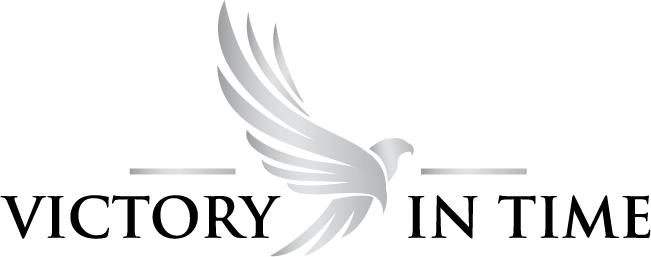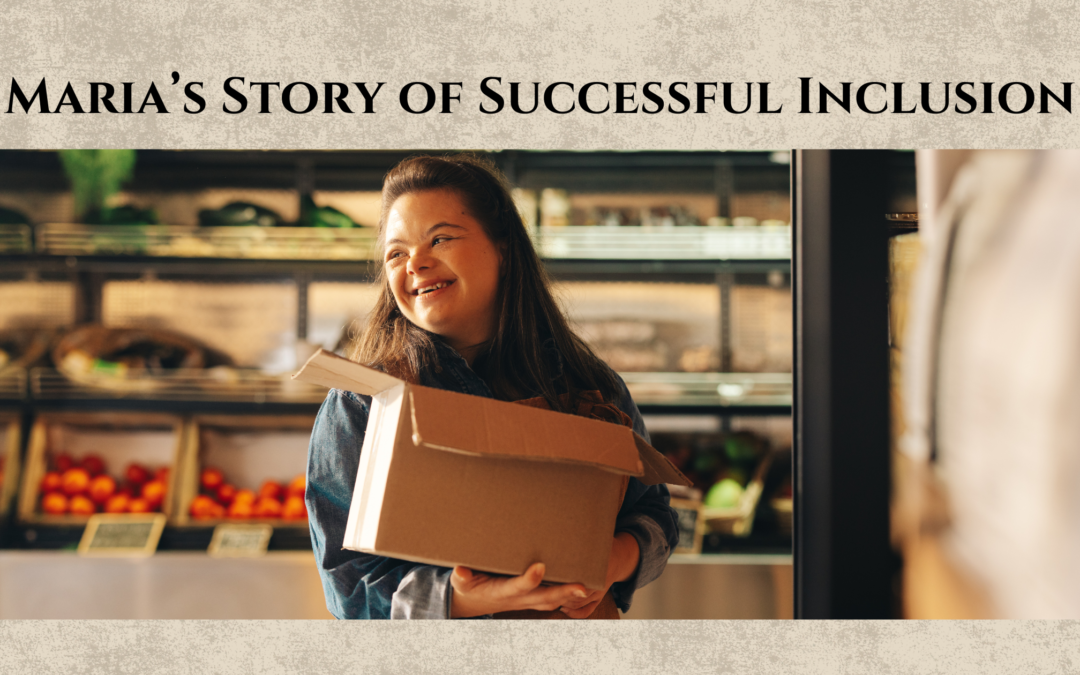October marks National Disability Employment Awareness Month (NDEAM) and Downs Syndrome Month, a time to celebrate the contributions of workers with disabilities and emphasize the importance of inclusive hiring practices. This month, I want to share the inspiring story of Maria, a young woman with Down syndrome who has not only found her place in the workforce but also touched the lives of everyone around her.
Maria’s Story: From Shyness to Self-Confidence
Maria was born with Down syndrome, a genetic condition that affects cognitive ability and physical development. Growing up, she faced numerous challenges—both in school and socially—but she always had an infectious smile and a positive outlook.
As she transitioned into adulthood, Maria’s parents, like many others, were worried about her future. They wanted her to find meaningful employment to help her develop independence while allowing her to interact with others. Thanks to an inclusive job program at a local grocery store, Maria’s journey to employment began.
Maria was offered a position as a customer service assistant, where she greeted customers, helped them bag groceries, and kept the shelves organized. At first, she was shy and unsure of her abilities, but Maria blossomed with patience, guidance, and support from her co-workers. Her confidence grew, and she soon became a beloved team member. Customers would specifically seek her out for her warmth and kindness, often leaving the store with their groceries and a little extra joy in their hearts.
Maria’s job has given her a sense of purpose and belonging. It’s not just about earning a paycheck—it’s about being a part of a community that values her contributions. In her words: “I love my job because I get to meet new people daily. I feel proud of myself, and I know I’m helping others.”
Employment Challenges and Opportunities for People with Disabilities
Maria’s story is just one example of the many success stories possible when employers are willing to give individuals with disabilities a chance. However, the reality is that people with disabilities, including those with Down syndrome, often face significant barriers to employment.
According to the U.S. Bureau of Labor Statistics, in 2022, the employment rate for people with disabilities was 21.3%, compared to 65.4% for people without disabilities. This disparity highlights the challenges that individuals with disabilities face in finding and keeping jobs.
The situation is even more difficult for people with intellectual and developmental disabilities (IDDs), like Down syndrome. Studies show that only 20% of people with IDDs are employed, despite many having the skills and desire to work. Common barriers include misconceptions about their abilities, lack of access to training programs, and inadequate workplaces to accommodate their needs.
The Importance of Inclusive Hiring
While these statistics may seem discouraging, many companies and organizations are making significant strides in creating inclusive workplaces. Employers are starting to recognize that hiring people with disabilities isn’t just about charity—it’s about bringing valuable perspectives, skills, and diversity to the workforce.
Research shows that businesses that practice inclusive hiring often see increased employee loyalty, improved team morale, and a more positive company image. In fact, people with disabilities have lower turnover rates and higher attendance compared to the general workforce. Additionally, customers appreciate companies that demonstrate social responsibility by offering opportunities to people of all abilities.
Maria’s employer recognized her potential and invested in her growth, giving her a job and providing her with the tools and support to succeed. As a result, they gained a dedicated, enthusiastic employee who positively impacted their workplace culture.
Building a More Inclusive Future
As we celebrate National Disability Employment Awareness Month and Downs Syndrome Month, it’s important to remember that employment is more than just a paycheck. It’s about dignity, independence, and the opportunity to contribute to society. People with disabilities, like Maria, have so much to offer, and it’s up to all of us—employers, co-workers, and community members—to create environments where they can thrive.
By breaking down barriers and challenging outdated stereotypes, we can build a future where every individual, regardless of ability, has the chance to succeed. Maria’s story is just one of many, but it serves as a reminder that everyone can achieve their dreams with the proper support.
Let’s use this month to celebrate the successes of workers with disabilities and commit to making workplaces more inclusive for all.

